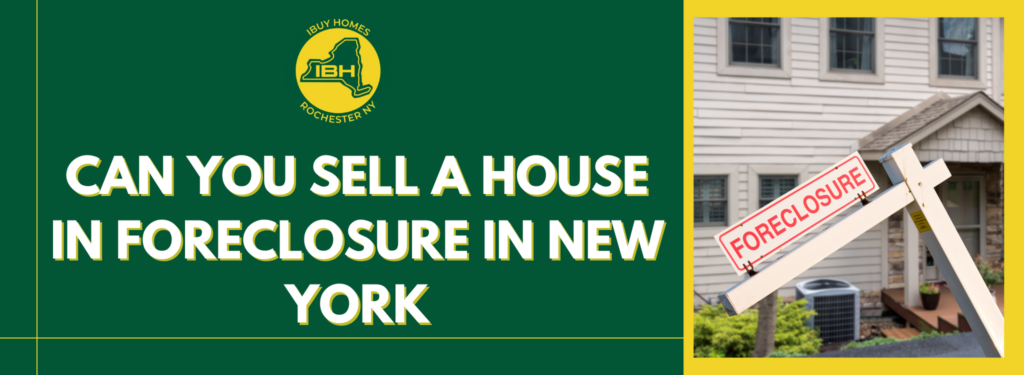
What Is the Foreclosure Process in New York?
In New York, foreclosure is a process through the courts known as judicial foreclosure. It starts when a lender sues a borrower who has missed mortgage payments. The lender sends a notice of default to let the homeowner know about the foreclosure. Each lender’s policy can vary, affecting how long the process takes. Due to different factors, the foreclosure process in New York can be long, sometimes lasting months or even years.
How Does Judicial Foreclosure Work in New York?
Because New York is a judicial foreclosure state, lenders must go to court to foreclose a property. The process starts when the lender files a complaint in housing court. After that, the court decides whether the foreclosure can move forward. This step ensures everyone’s rights are respected. Homeowners should respond quickly to all legal documents and might want help from a lawyer knowledgeable in New York foreclosure laws.
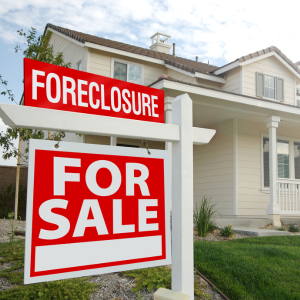
What Legal Steps Are Involved in Foreclosure Proceedings?
Foreclosure proceedings begin with the lender sending a notice of default. Then, they file a lawsuit, and the homeowner receives a summons and complaint. The court sets hearing dates to decide what happens next. During this process, homeowners can defend themselves. Knowing how the foreclosure process in New York works is crucial for getting through these steps.
Can a Lender Accelerate a Mortgage in New York?
If a borrower defaults in New York, a lender can accelerate a mortgage. This means they demand the full mortgage balance right away. This usually happens if there is an acceleration clause in the mortgage agreement. Knowing your mortgage terms and talking with an advisor about options if you default is important. Understanding the lender foreclosure policy in New York helps homeowners manage their situations better.
How Can You Stop a Foreclosure in New York?
There are several ways to stop foreclosure in New York. Homeowners can negotiate with the lender to change the loan terms or sell the property before the foreclosure sale date. Talking to foreclosure prevention counselors can also provide helpful advice for avoiding foreclosure.
What Options Are Available to Delay the Foreclosure Process?
Delaying foreclosure gives homeowners time to look for other solutions. Options include:
- Negotiation with the Lender: Discuss new payment plans or loan restructuring.
- Foreclosure Mediation Program in NY: This program helps resolve payment issues outside of court.
- Foreclosure Prevention Counseling: Counselors offer strategies based on the homeowner’s situation.
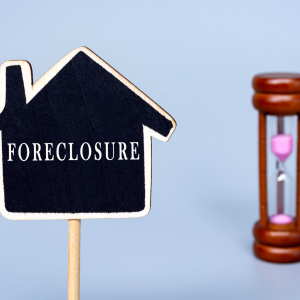
Is Loan Modification a Viable Solution?
Loan modification can make mortgage payments easier by changing the loan terms, such as lowering the interest rate or extending the payment period. Talking with the lender about loan modification can clarify if it’s a good option for your situation in New York.
How Effective Are Foreclosure Mediation Programs?
Foreclosure mediation programs in New York help borrowers and lenders communicate. These programs aim to find solutions without going to court. Housing courts offer these programs to solve disputes, making them a helpful resource during foreclosure. Participating in foreclosure mediation may prevent or delay losing a home.
Consider contacting trusted entities like I Buy Homes Rochester for more information and assistance with foreclosure issues.
Is Selling During Pre-Foreclosure a Good Option?
If you’re facing foreclosure in New York, selling your property during the pre-foreclosure period might be a good choice. This option can help settle debts and avoid damage to your credit score. In New York’s competitive real estate market, selling a distressed property can offer financial relief and a chance to start over.
What Are the Benefits of Selling a Home in Pre-Foreclosure?
Selling a home in pre-foreclosure has several perks:
- Avoiding Foreclosure: Keep foreclosure from hitting your credit report and maintain your financial standing.
- Cash Offer Potential: Buyers often make cash offers for pre-foreclosure homes, speeding up transactions.
- Financial Relief: Selling the home can settle debts, easing financial pressure.
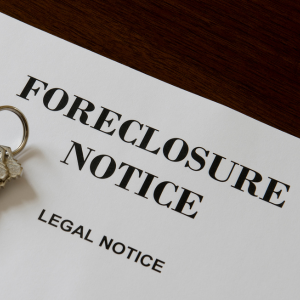
How Can You List Your House for Sale Before an Auction?
To sell your house before a foreclosure auction in New York, follow these steps:
- Assess Property Value: Find out your home’s current market value.
- Work with a Real Estate Professional: Hire an expert familiar with foreclosures.
- Market Your Home: Use smart marketing strategies to attract buyers.
- Negotiate Offers: Review all offers, prioritizing cash deals for a swift sale.
- Finalize Sale Quickly: Complete the sale before the auction date arrives.
What Do Buyers Look for in Distressed Properties?
Buyers interested in distressed properties usually want:
- Discounted Prices: Lower prices than other real estate options.
- Potential Return on Investment: Opportunities to boost property value through updates.
- Location Benefits: Properties in appealing areas of the New York housing market.
- Structural Soundness: Basic structural stability to minimize immediate renovation expenses.
What Role Do Real Estate Professionals Play in Foreclosure Sales?
Real estate professionals play a critical role in foreclosure management. They use their knowledge to direct the foreclosure process and assist homeowners in finding buyers. Experts are familiar with market trends and can help you set realistic expectations for your home sale.
How Can Professionals Help Sell Your Home Quickly?
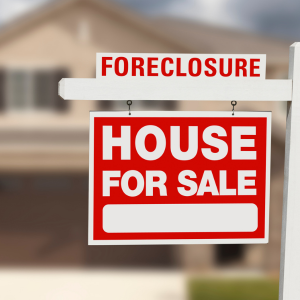
Experts can help you sell your home quickly by:
- Pricing Competitively: Setting a fair price to attract buyers is crucial when pricing competitively.
- Marketing Effectively: Effective marketing involves reaching potential buyers through multiple channels.
- Negotiating Offers Efficiently: Securing the best possible deal for you.
- Managing Paperwork: Efficiently managing paperwork to streamline processes.
What Should You Consider When Choosing a Real Estate Professional?
Consider the following factors when choosing a real estate professional:
- Experience with Foreclosures: Experts with experience in foreclosure sales are preferred.
- Local Market Knowledge: Select someone with a strong local market knowledge.
- Reputation and Reviews: Consider legal experts who have received positive feedback from previous clients.
- Communication Skills: Choose professionals with clear communication skills during transactions.
What Are the Financial Implications of Foreclosure in New York?
Foreclosure in New York can have major financial effects on homeowners. Knowing these impacts can help you prepare and reduce the damage.
How Does Foreclosure Affect Your Credit Score?
Foreclosure can hurt your credit score. Your mortgage company reports this to credit agencies when you miss mortgage payments. This leads to a lower credit score. A low credit score makes getting loans or credit cards hard and can lead to higher interest rates. Addressing financial problems quickly can help minimize harm to your credit report.
Can You Face a Deficiency Judgment After Foreclosure?
In New York, the lender might seek a deficiency judgment if your home sells for less than what you owe during foreclosure. You must pay the difference between your mortgage debt and the sale amount. Knowing this can help you plan for possible legal and financial setbacks.
Are There Tax Consequences Post-Foreclosure?
Foreclosure can bring tax consequences due to debt forgiveness. If part of your debt is forgiven, the IRS could see it as taxable income. Knowing this helps you prepare for any tax bills after a mortgage default. Talking to a tax professional can clarify how this affects your tax returns.
How Can Homeowners Protect Their Equity During Foreclosure?
Keeping your equity safe during foreclosure is critical. In New York, homeowners have various options, each with their own risks and benefits.
What Steps Can Be Taken to Preserve Home Equity?
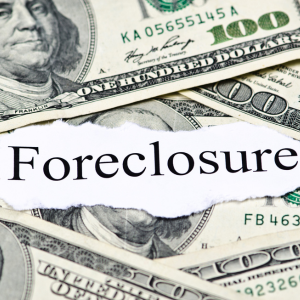
To save home equity during foreclosure, homeowners may work with a real estate investor or consider a cash offer for their property. These actions can help preserve some financial value before the foreclosure process is completed. Reviewing options with a financial advisor can assist you in determining the best plan for your specific circumstances.
Is Equity Stripping a Risk in Foreclosure Situations?
Equity stripping is a significant risk for homeowners in foreclosure. This occurs when unscrupulous lenders use scams to extract remaining equity. To avoid falling victim to these fraudulent practices, homeowners should remain vigilant and carefully review any offers.
Can Selling to a Cash Buyer Benefit Homeowners?
Selling to a cash buyer may be a good option for foreclosure homeowners. Working directly with a real estate investor expedites the sale process and avoids the lengthy procedures associated with traditional sales. This allows homeowners to quickly obtain equity and potentially avoid future financial problems.
By considering these points and consulting with experts, homeowners can better manage foreclosure and reduce its impact. For personalized assistance, contact professionals like I Buy Homes Rochester, who specialize in assisting homeowners during difficult times.
How Does Bankruptcy Impact Foreclosure Processes?
Foreclosure can be greatly affected by bankruptcy, especially for people having a hard time with money. If you are having trouble making your mortgage payments, you must know how bankruptcy and foreclosure work together.
Can Filing for Bankruptcy Halt Foreclosure?
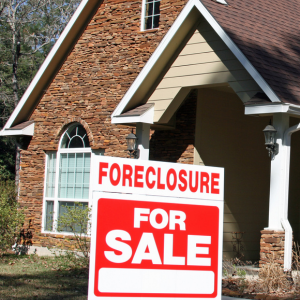
Yes, the “automatic stay” can temporarily stop a foreclosure if you file for bankruptcy. Because of this law, lenders can’t go ahead with foreclosure, which gives homeowners time to get their finances in order. You should talk to a lawyer to find out how long this protection lasts and how it affects your mortgage.
What Are the Differences Between Chapter 7 and Chapter 13?
When you think about bankruptcy, it’s important to know the difference between Chapters 7 and 13:
- Chapter 7: This is where you sell assets to pay off debts. It may help get rid of some debts, but you could lose property if certain conditions are met.
- Chapter 13: This is a way to pay back your debts over three to five years while keeping your home. That way, you won’t have to lose your home to deal with your debt.
This information helps you pick the best way to handle your money.
Is Bankruptcy Always a Last Resort for Homeowners?
Going bankrupt is a big choice. It’s not always the last option, but it can help with money and be part of a legal plan. Before going bankrupt, homeowners should look at all their options, such as changing their loans or refinancing. It’s smart to talk to a financial advisor or lawyer to look at all possible outcomes.
What Are Common Myths About Foreclosure in New York?
Foreclosure in New York can be stressful and confusing, leading to myths that mislead homeowners and real estate professionals. It’s important to learn what’s true.
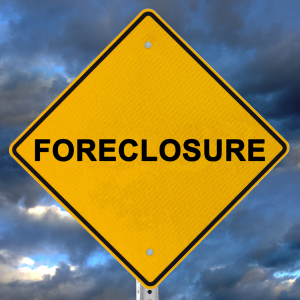
Is It True That Foreclosure Cannot Be Stopped Once Started?
It’s not true that foreclosure can’t be stopped once it begins. Legal options like negotiating with the lender or using the automatic stay through bankruptcy may stop foreclosure. Understanding the process and talking with your lender are important steps.
Do Banks Prefer Selling Homes at Auction?
Banks use auctions to recover losses from foreclosed properties, but they don’t always prefer this. Auctions can bring in less money than traditional sales, and banks may also consider short sales or direct sales for better returns.
Are Foreclosure Scams Prevalent in New York?
Sadly, foreclosure scams are common in New York. Scammers often promise to save homes for a fee without real help. Know your consumer rights and seek legal advice when needed. Be wary of offers that sound too good to be true, and get help from trusted experts to protect your home and finances.
Homeowners can make informed decisions about foreclosure and bankruptcy by learning about these topics. For more specific advice, consult real estate and financial law experts.
What Support Resources Are Available for Distressed Homeowners?
If you’re facing foreclosure in New York, it can feel overwhelming. Fortunately, there are various resources to help, such as foreclosure assistance programs, counseling services, and community resources.

Where Can You Find Foreclosure Assistance Programs?
In New York, knowing your rights and the support available during foreclosure is important. The state offers several foreclosure assistance programs. These include foreclosure prevention counseling and legal aid to help you understand your options and possibly save your home.
How Can Counseling Help Manage Stress During Foreclosure?
Foreclosure is a major source of stress that can impact your mental and emotional health. Foreclosure prevention counseling can help manage this stress. Professional counselors offer financial management guidance and emotional support, helping homeowners find solutions during difficult times.
Are There Community Resources Available in New York?
New York has many community resources for those facing foreclosure. Housing court mediation programs offer a chance for lenders and borrowers to negotiate and find alternative solutions. Local non-profits also provide workshops and support to help residents handle foreclosure challenges.
Can Selling to an Investor Help Resolve Foreclosure Issues?
Selling to a real estate investor might be a good way to handle foreclosure issues. Investors in distressed properties often work with cash buyers, offering quick deals. This can be helpful if foreclosure is imminent in New York.
What Are the Advantages of Selling to a Real Estate Investor?
There are advantages to selling to a real estate investor. Investors usually offer cash quickly, helping you avoid lengthy foreclosure processes. In New York, selling a distressed property to an investor can help close the deal faster and reduce financial pressure and credit damage.
How Do Investors Evaluate Distressed Properties?
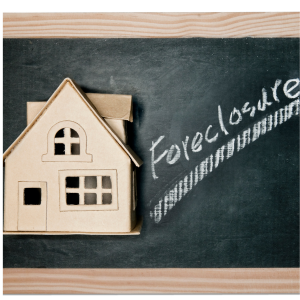
When evaluating distressed properties, real estate investors consider location, market conditions, and needed repairs. Knowing how they assess value can help you set realistic expectations when selling your property in New York.
What Are the Potential Drawbacks of Investor Sales?
While investor sales can speed things up, there are drawbacks. Cash offers might be below market value because investors aim for profitable deals. It’s wise to weigh these factors against the urgency of your foreclosure before moving forward with a cash sale in New York.
This information applies to New York and its cities like Rochester, Greece, Hilton, and more. For help or questions, call us at (585) 940-2447. You can also visit our website at I Buy Homes Rochester for more details.
FAQs:
Can you sell your house if it’s facing foreclosure in New York?
Yes, you can sell your house even if it’s in foreclosure. You are allowed to sell it up until the foreclosure auction date. It’s wise to consult experts to ensure you meet all legal requirements.
What happens to my mortgage if I sell my home under foreclosure?
When you sell your home, the money can pay off the mortgage, which might stop the foreclosure. You can negotiate with your lender if the sale price is less than what you owe.
Can I sell my home myself before the foreclosure auction?
Yes, you can sell your home on your own before the auction date. It’s important to act quickly to find buyers who can close fast.
Are there alternatives in New York if I’m underwater on my mortgage?
If you’re underwater on your mortgage, options like a short sale or deed instead of foreclosure are available. Talking to a real estate advisor can help you choose the best option.
How does foreclosure affect homes with FHA, Freddie Mac, or VA loans in New York?
Each type of loan has specific rules during foreclosure. For FHA, Freddie Mac, or VA loans, different help programs might be available. Contact your loan servicer for more information.
What should I know about property liens during foreclosure in New York?
In New York, any liens on your property need to be resolved before selling. A title company can help identify and clear up these issues before closing the sale.
What are the steps for reinstating a mortgage in New York to avoid foreclosure?
To reinstate a mortgage, you must pay overdue amounts, including interest and fees, by a certain date. Talk with your lender as soon as possible to discuss reinstatement options.
What happens after a foreclosure in New York regarding eviction?
If the home hasn’t been sold to a new owner after foreclosure, an eviction process may start. Know your rights and consider seeking legal advice to explore your options.
Key Insights
- Learn about options for an underwater mortgage in NY, including how to manage or sell properties in this situation.
- A deed instead of foreclosure can be a good choice in New York; know how it affects your credit and future loans.
- If you’re selling a home under threat of foreclosure in NY, get expert advice to handle the legal and money issues.
- FHA foreclosure rules in New York can be different; know the timelines and your rights as a homeowner.
- Pay attention to Fannie Mae foreclosure guidelines in New York; check if you qualify for help programs.
- VA foreclosure support in New York has special benefits for veterans; use these to avoid foreclosure.
- Dealing with property liens during foreclosure in NY is important; ensure all liens are addressed before moving forward.
- Knowing about eviction after foreclosure in NY helps you prepare for the process and find possible help or delays.
- Reinstatement of a mortgage in New York can stop foreclosure; find out what payments are needed and consider negotiation tactics.
- Cooperative unit foreclosure in NY has special rules; check your cooperative’s bylaws and state laws to guide your actions.
Additional Resources For New York Sellers


